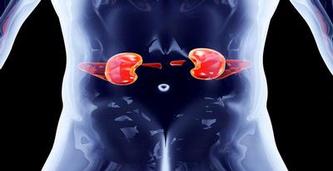
Although somewhat rare to find someone who is living with one lung, but the newly elected Pope Francis is a bit of a rare person.
76-year-old pope underwent surgical removal of the lung because his lungs are infected when she was a teenager. At that time, lung infections such as pneumonia or tuberculosis may lead to removal of the lung because antibiotics have not been as effective this time.
76-year-old pope underwent surgical removal of the lung because his lungs are infected when she was a teenager. At that time, lung infections such as pneumonia or tuberculosis may lead to removal of the lung because antibiotics have not been as effective this time.
According Dr.Len Horovitz, pulmonary expert from Lenox Hill Hospital in New York, USA, in the present case any complications as pneumonia and whooping cough are difficult to treat doctors are forced to dispose of the infected lung. Similarly with lung cancer.
If one lung removed, the remaining lung will take over the task. Because it is living with one lung had little influence in everyday life.
Although we have attempted to keep the organ as possible, but it turns out we can still live even without the following organs:
- Kidney
Humans have two kidneys even though we still can survive with only one kidney. There are people who are born with only one kidney, or a kidney had to be taken to donate or removed after the injury.
In general, a person can live normally with just one kidney. Even technically we could actually live without a kidney, but had to do dialysis on a regular basis.
- Spleen
The function of the spleen is to filter the blood and helps the body fight infection. But the organ is not essential for survival. The spleen can be removed, for example if there is damage. But people who live without a spleen prone to contracting the disease.
- Reproductive Organs
There are several reasons why women are forced to undergo a hysterectomy or removal of the uterus, such as cancer, tumors in the uterus, chronic pelvic pain, and so on. Approximately 1 in 3 women in the U.S. undergo a hysterectomy procedure at the age of 60 years. While men can also undergo removal of the testes if testicular cancer.
- Stomach
Gastric sometimes partially or completely removed as part of treatment of gastric cancer. This procedure is known as gastrectomy. In this procedure, the small intestine is connected to the esophagus.
Someone who underwent total gastrectomy will get the nutrients through blood vessels for several weeks after surgery. After that they are able to eat a variety of foods in small portions though.
- The large intestine
Colon cancer or diseases Chrohns will also make sufferers undergo removal of the colon or large intestine. We can live without but have to wear colonic pouch in the stomach to accommodate the waste. But now doctors can perform surgery to make some sort of bag in the small intestine instead of the colon were removed.
- Appendix
The length of the appendix, which looks like a worm, and attaches to the beginning of the large intestine is about 8.5 cm. It is unclear what the function of the appendix, is likely to act as intestinal immunity colon. Bowel is often removed if you have inflammation or swelling.
If one lung removed, the remaining lung will take over the task. Because it is living with one lung had little influence in everyday life.
Although we have attempted to keep the organ as possible, but it turns out we can still live even without the following organs:
- Kidney
Humans have two kidneys even though we still can survive with only one kidney. There are people who are born with only one kidney, or a kidney had to be taken to donate or removed after the injury.
In general, a person can live normally with just one kidney. Even technically we could actually live without a kidney, but had to do dialysis on a regular basis.
- Spleen
The function of the spleen is to filter the blood and helps the body fight infection. But the organ is not essential for survival. The spleen can be removed, for example if there is damage. But people who live without a spleen prone to contracting the disease.
- Reproductive Organs
There are several reasons why women are forced to undergo a hysterectomy or removal of the uterus, such as cancer, tumors in the uterus, chronic pelvic pain, and so on. Approximately 1 in 3 women in the U.S. undergo a hysterectomy procedure at the age of 60 years. While men can also undergo removal of the testes if testicular cancer.
- Stomach
Gastric sometimes partially or completely removed as part of treatment of gastric cancer. This procedure is known as gastrectomy. In this procedure, the small intestine is connected to the esophagus.
Someone who underwent total gastrectomy will get the nutrients through blood vessels for several weeks after surgery. After that they are able to eat a variety of foods in small portions though.
- The large intestine
Colon cancer or diseases Chrohns will also make sufferers undergo removal of the colon or large intestine. We can live without but have to wear colonic pouch in the stomach to accommodate the waste. But now doctors can perform surgery to make some sort of bag in the small intestine instead of the colon were removed.
- Appendix
The length of the appendix, which looks like a worm, and attaches to the beginning of the large intestine is about 8.5 cm. It is unclear what the function of the appendix, is likely to act as intestinal immunity colon. Bowel is often removed if you have inflammation or swelling.
 RSS Feed
RSS Feed